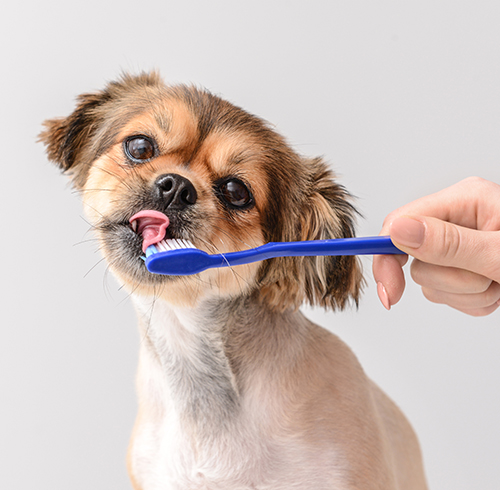Shelton Veterinary Care
(317)392-7945
www.sheltonpethospital.com
|
Dentistry
Pre-Dental InstructionsApproximately 1 week before the scheduled procedure, we will email you paperwork for the dental procedure. This paperwork will return to us electronically as soon as you complete it. Dental patients can have nothing to eat after 8:00 p.m. the night before the procedure. They are admitted at 8:00 a.m. on the day of the procedure. At time of admission, our Registered Veterinary Technicians will check your pet’s vitals. They will also provide an estimate of the procedure. This check in takes approximately 10 minutes. We also set up a time for discharge the same afternoon. Pre-Anesthetic BloodworkWe offer in-house blood testing before elective dental procedures. Preanesthetic blood testing is an important step to minimize anesthetic risk. We strongly recommend that every pet has blood testing done before anesthesia to ensure that the liver and kidneys are functioning well so they can metabolize the anesthesia drugs. This blood test can also reveal a problem with the blood cells that could delay clotting or wound healing after surgery. Even apparently healthy animals can have serious organ system problems that cannot be detected without blood testing. Pets with minor dysfunctions may still be a candidate for their scheduled procedure. If serious problems are detected, the dental can be postponed until the problem is corrected. AnesthesiaWe utilize the safest available anesthetics to provide an extra margin of safety; especially for our older or high-risk patients. Using the most modern equipment, the patients vital signs are monitored during all anesthetic procedures. Dental ProcedureYour pet will be under anesthesia during the dental procedure. During a dental cleaning, we use an ultrasonic scaler to remove tartar from the teeth and from below the gum line. This helps prevent infection and bone loss. It also helps prevent the spread of harmful bacteria to the heart, liver and kidneys. The doctor does a full oral exam and probes around each tooth to determine if there is periodontal disease. We offer dental radiographs that can help determine if extractions are needed. The teeth are then polished which helps delay recurrence of plaque and tarter build up. ExtractionsSometimes we must extract teeth to make sure your pet has a pain free, infection free mouth. A tooth needs to be extracted if it is severely broken, if the inner part of the tooth (pulp) is exposed, if the tooth is loose, or dead, or if we see evidence of infection. Our goal is to extract as few teeth as possible, but we sometimes find unexpected infection or disease hiding under the gumline while scaling and probing the teeth that we otherwise would not be able to see on the initial oral exam. |


